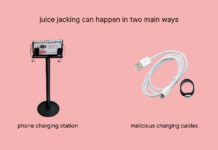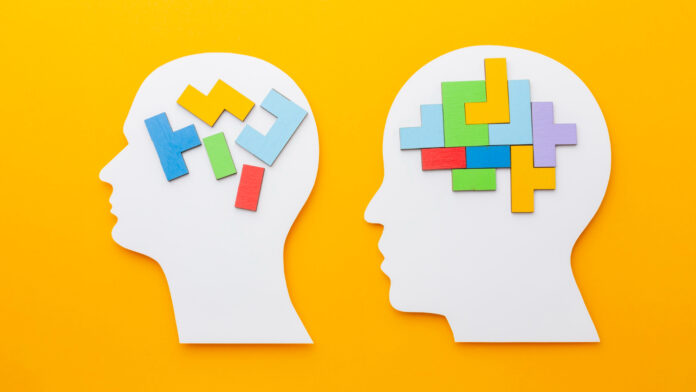Memory is a crucial aspect of our lives. From remembering daily routines to important dates, we rely on our memory to function properly. However, with so much information to process every day, it is common for people to experience difficulties with memory retention. Fortunately, there are simple techniques that you can use to improve your memory. In this article, we will explore various memory improvement techniques, simple memory hacks, and natural memory boosters that can help you enhance your memory retention and recall.
Memory Improvement Techniques
There are several memory improvement techniques that you can use to improve your memory. The following techniques have been proven to be effective and are easy to implement:
- Association Techniques: Association techniques involve connecting new information with something that is already familiar to you. By creating a link between the new information and something you already know, you can easily remember the new information.
For example, if you are trying to remember someone’s name, you can associate their name with something that you can easily recall. If the person’s name is John, you can associate it with the name of a friend or family member named John that you know.
- Memory Palace Technique: The Memory Palace Technique involves associating the information with a familiar place, such as your house. This technique involves imagining a walk-through of your house and associating each piece of information with a specific location within the house. For example, you could associate a phone number with the door, and every time you visualize the door, you will be reminded of the phone number.
- Visualization Techniques: Visualization techniques involve creating mental images of information to be remembered. By creating a visual representation of information, you can easily remember it. For example, if you need to remember a list of items, you can visualize the items on a table or shelf in a particular order.
- Chunking: Chunking is the process of breaking down large amounts of information into smaller, more manageable pieces. By grouping information into smaller chunks, you can make it easier to remember. For example, if you need to remember a long string of numbers, you can group them into smaller segments of 3-4 digits each.
Simple Memory Hacks
In addition to memory improvement techniques, there are several simple memory hacks that you can use to improve your memory retention and recall. These hacks are easy to implement and can be used in your everyday life:
- Use Mnemonics Mnemonics are memory aids that use a pattern of letters, words, or associations to help you remember information. For example, to remember the order of planets in our solar system, you can use the mnemonic “My very eager mother just served us nine pizzas” to remember Mercury, Venus, Earth, Mars, Jupiter, Saturn, Uranus, Neptune, and Pluto.
- Repetition is a simple and effective way to improve memory retention. By repeating information several times, you can make it easier to remember. For example, if you need to remember a phone number, repeat it to yourself several times.
- Staying organized can help you remember important information. By keeping a to-do list or calendar, you can keep track of important dates and tasks. This can help reduce stress and make it easier to remember important information.
- Get Enough Sleep plays a crucial role in memory consolidation. Getting enough sleep can help improve memory retention and recall. Aim for at least 7-8 hours of sleep per night to improve your memory.
Ways to Boost Memory
In addition to memory improvement techniques and simple memory hacks, there are several ways to boost memory. These include:
- Exercise Regularly: Exercise can improve brain function and memory retention. Regular exercise can also reduce the risk of cognitive decline and dementia. Aim for at least 30 minutes of moderate exercise per day, such as brisk walking, cycling, or swimming.
- Eat a Healthy Diet: A healthy diet can also improve brain function and memory retention. Focus on eating a balanced diet that includes plenty of fruits, vegetables, whole grains, lean protein, and healthy fats. Avoid processed foods and excess sugar, as these can negatively impact brain function.
- Reduce Stress: Stress can have a negative impact on memory retention and recall. Find ways to reduce stress in your life, such as practicing mindfulness, meditation, or yoga. Exercise and spending time outdoors can also help reduce stress.
- Challenge Your Brain: Challenging your brain can help improve memory retention and recall. Engage in activities that challenge your brain, such as puzzles, crosswords, or learning a new language. This can help improve cognitive function and prevent cognitive decline.
Techniques for Better Memory Retention
There are several techniques that you can use to improve memory retention. These techniques can help you remember important information more easily:
- Use Multiple Senses: Using multiple senses can help improve memory retention. For example, if you are trying to remember a person’s name, repeat their name while looking at their face and shaking their hand. This will help you associate the name with a visual and tactile experience, making it easier to remember.
- Practice Active Recall: Active recall involves actively retrieving information from memory. This can help improve memory retention and recall. Practice recalling information by quizzing yourself or discussing the information with someone else.
- Use Memory Cues: Memory cues can help trigger memories and improve memory retention. For example, if you need to remember a phone number, associate it with a specific location or object. Every time you see that location or object, you will be reminded of the phone number.
- Space Out Learning: Spacing out learning can help improve memory retention. Instead of cramming information all at once, space out your learning over several sessions. This can help improve retention and recall.
Memory Improvement Strategies
In addition to the techniques and hacks discussed above, there are several memory improvement strategies that you can use to improve your memory:
- Focus Your Attention: Focusing your attention can help improve memory retention. Minimize distractions and focus on the information you need to remember. This can help improve retention and recall.
- Repeat Information: Repeating information can help improve memory retention. Repeat information to yourself several times or write it down several times to help you remember it.
- Use Visualization: Visualization can help improve memory retention. Create mental images of the information you need to remember to help you recall it later.
- Use Analogies: Using analogies can help improve memory retention. Compare new information to something that you already know to help you remember it.
Simple Tips for a Better Memory
In addition to the techniques and strategies discussed above, there are several simple tips that you can use to improve your memory:
- Stay Active: Staying active can help improve brain function and memory retention. Engage in physical activity, such as walking, running, or swimming, to help improve memory.
- Stay Social: Staying social can also help improve brain function and memory retention. Engage in social activities, such as volunteering or joining a club, to help improve memory.
- Challenge Yourself: Challenging yourself can help improve brain function and memory retention. Engage in activities that challenge your brain, such as puzzles or learning a new skill.
Also Read: How to improve your mental health at work – 8 easy tips
Memorization Techniques for Students
Students can benefit from using specific memorization techniques to improve their memory retention and recall. The following techniques are particularly helpful for students:
-
- Acronyms can help students remember information, such as a list of terms or steps in a process. Create an acronym using the first letter of each item you need to remember. For example, to remember the order of operations in math (parentheses, exponents, multiplication, division, addition, subtraction), create the acronym PEMDAS.
- Mnemonics are memory aids that help students remember information by associating it with something else. For example, to remember the colors of the rainbow (red, orange, yellow, green, blue, indigo, violet), create a mnemonic using the first letter of each color to create the sentence “Richard Of York Gave Battle In Vain.”
- Chunking involves breaking down information into smaller, more manageable chunks. For example, instead of trying to remember a 10-digit phone number all at once, break it down into smaller chunks of 3-4 digits. This can help improve memory retention and recall.
Natural Memory Boosters
In addition to the memory improvement techniques and strategies discussed above, there are several natural memory boosters that can help improve memory function:
- Omega-3 fatty acids, found in fatty fish like salmon and mackerel, can help improve brain function and memory retention.
- Blueberries contain antioxidants that can help protect the brain from oxidative stress and improve brain function.
- Ginseng is an herb that has been shown to improve cognitive function and memory retention.
- Getting enough sleep is essential for optimal brain function and memory retention. Aim for 7-8 hours of sleep per night to improve memory function.
Memory Exercises for Better Recall
In addition to the Memory improvement techniques discussed above, there are several memory exercises that you can use to improve recall:
- Word Association: Create a list of words and try to associate each word with something else. For example, if the word is “dog,” associate it with “bone” or “bark.”
- Visualization: Create mental images of information you need to remember to help improve recall. For example, if you need to remember a grocery list, create mental images of each item on the list.
- Memory Games: Play memory games, such as card matching games or memory puzzles, to improve memory function and recall.
Conclusion
Improving your memory function doesn’t have to be difficult or time-consuming. By incorporating simple techniques, hacks, and strategies into your daily routine, you can improve your memory retention and recall. Remember to stay active, eat a healthy diet, reduce stress, challenge your brain, and use memory cues. Additionally, try natural memory boosters, such as omega-3 fatty acids and blueberries, and practice memory exercises, such as word association and visualization. By following these simple memory improvement techniques and strategies, you can boost your memory function and improve your overall cognitive health.

















